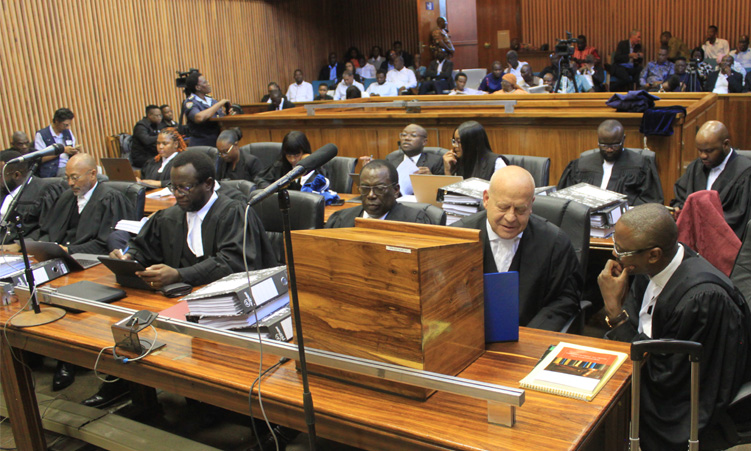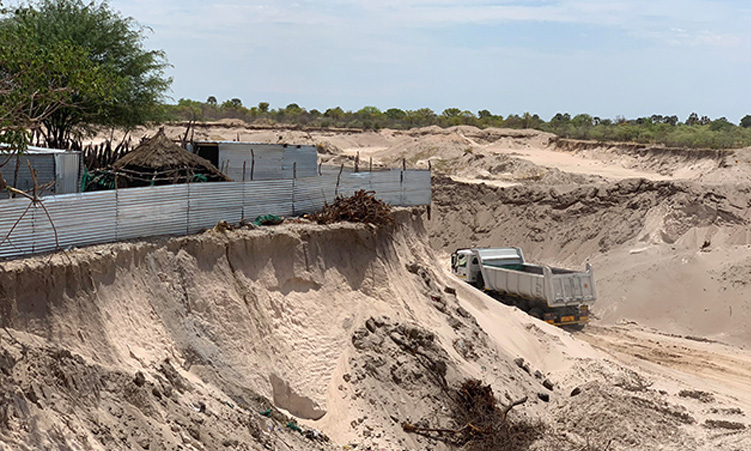ALLOW me space to express a few thoughts after Ramatex finally took their leave.
Mr Herbert Jauch, like hundreds of other Namibians, sees the Ramatex investment for what it was – a well calculated plan to con inexperienced leaders into accepting a well-dressed plan. Ramatex was just one of many similar schemes.We all remember the Usakos Oil Refinery and the huge motor assembly plant in Gobabis.The strategy of other institutions is to give “gifts” (eastern countries).The “gift” however, has lots of strings attached that the general public never knows about.These institutions send top negotiators that are masters in manipulating the inexperience decision makers, who are convinced (and often helped to be convinced – with a few gifts) that their business proposition is a “gift”.In the fine print of the gifts there are usually things like concession in import taxes, mineral rights, fishing quotas, preferential trade, etc.The people who take part in the discussions are usually too ignorant or overconfident to ask for advice.And then it cost the country dearly.The other strategy is soft loans.Foreign institutions approach ministries in the same manner.Top negotiators that know when and how to use the sugar words “we want to help you to …”, “we will give you …”and always claiming vast sums of money are available and all is interest free.In the fine print however, conditions include materials from the host company (at highly inflated rates), fees to the host’s consultants (usually triple that of the locals).Building cost can be inflated to the extent that maintenance programmes can be offered as part of the deal.The crux of the matter is that the user pays for every cent.Interest free means that the financing cost has been discounted for in the purchase price.But again, if a con artist presents it with the right key words, to the right audience and the right gifts, it is a done deal.And African countries are caught on a nearly daily basis, because the decision makers do not get sound advice from accounting firms, engineers, etc.to give them a balanced picture.On top of it all, there is zero transfer of skills.The acceptance of such deals is one of the factors that make Africa a poor continent.Let us hope that the ANSA proposals will also regulate the decision making process with regards to these type of “investments”.NL, Via e-mail Note: Name and address provided – EdRamatex was just one of many similar schemes.We all remember the Usakos Oil Refinery and the huge motor assembly plant in Gobabis.The strategy of other institutions is to give “gifts” (eastern countries).The “gift” however, has lots of strings attached that the general public never knows about.These institutions send top negotiators that are masters in manipulating the inexperience decision makers, who are convinced (and often helped to be convinced – with a few gifts) that their business proposition is a “gift”.In the fine print of the gifts there are usually things like concession in import taxes, mineral rights, fishing quotas, preferential trade, etc.The people who take part in the discussions are usually too ignorant or overconfident to ask for advice.And then it cost the country dearly.The other strategy is soft loans.Foreign institutions approach ministries in the same manner.Top negotiators that know when and how to use the sugar words “we want to help you to …”, “we will give you …”and always claiming vast sums of money are available and all is interest free.In the fine print however, conditions include materials from the host company (at highly inflated rates), fees to the host’s consultants (usually triple that of the locals).Building cost can be inflated to the extent that maintenance programmes can be offered as part of the deal.The crux of the matter is that the user pays for every cent.Interest free means that the financing cost has been discounted for in the purchase price.But again, if a con artist presents it with the right key words, to the right audience and the right gifts, it is a done deal.And African countries are caught on a nearly daily basis, because the decision makers do not get sound advice from accounting firms, engineers, etc.to give them a balanced picture.On top of it all, there is zero transfer of skills.The acceptance of such deals is one of the factors that make Africa a poor continent.Let us hope that the ANSA proposals will also regulate the decision making process with regards to these type of “investments”.NL, Via e-mail Note: Name and address provided – Ed
Stay informed with The Namibian – your source for credible journalism. Get in-depth reporting and opinions for
only N$85 a month. Invest in journalism, invest in democracy –
Subscribe Now!









